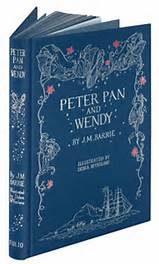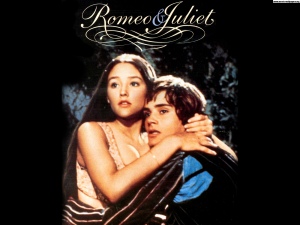Assignment Sheets for Week One and Two: Begin 8-31-15
Posted by Christel Swasey in Assignment Sheets on August 25, 2015
Please print out this assignment sheet for week 1 and week 2.
Monday, August 31 – Face to Face Class
DUE TODAY: Nothing!
HOMEWORK FOR TONIGHT:
Read: “Thank You, Ma’am” by Langston Hughes. You may read and/or listen to the short story at the links below. http://staff.esuhsd.org/danielle/english%20department%20lvillage/rt/Short%20Stories/Thank%20You,%20Ma’am.pdf or http://betterlesson.com/community/document/244433/2009-10-23-thank-you-ma-am-text-doc
There is a literary audio recording on youtube: https://www.youtube.com/watch?v=oi2n-rlj4PU
Write: A story review: 150 word minimum: For full credit, type using complete sentences. Make a creative title for your review, and include your own name and the date. Include the story’s title and author, describe the setting, give a plot summary, and explain (with direct quotes from the story) the author’s use of language to characterize the two characters (hint: did he effectively use dialect, metaphor, simile, imagery?) Include your own personal response to this short story, too. DUE NEXT MONDAY.
Grammar/Usage: In cursive, write down the definition AND give an example for each of the parts of speech. DUE NEXT MONDAY.
Wednesday, September 2 – Independent work
DUE TODAY: Nothing!
HOMEWORK FOR TONIGHT:
Read: “The Art of Eating Spaghetti” by Russell Baker. You can find it at the link(s) below. http://www.myteacherpages.com/webpages/rgunnar/files/Baker%20Art%20of%20Eating%20Spaghetti.pdf or https://analisisliterarioeningles.files.wordpress.com/2013/02/the-art-of-eating.pdf
Write: A personal essay, 300 words or much longer, on any subject. Stuck? Here are ideas: Have you ever misjudged someone and later your opinion changed? What caused the change? Do you have a favorite hobby/sport/dream? What makes it interesting to you? What was the best summer/holiday/surprise/joke/friend/treasure/talent/story of your life? Describe it with strong verbs, expressive details, and make readers feel that they were there too. DUE MONDAY.
Grammar/Usage: What is the difference between a complete sentence and a dependent clause? Write just a few sentences, in your best cursive writing, that would clarify the point to a fifth grader. DUE MONDAY.
Friday, September 4 – Independent work
DUE: Nothing!
HOMEWORK FOR TONIGHT:
Read: “Harrison Bergeron” by Kurt Vonnegut. You can find the text and audio at these links: http://www.tnellen.com/cybereng/harrison.html https://www.youtube.com/watch?v=6aAH_G5hcAg
Write: A short review (150 words). For full credit, include the title, author, plot summary, setting, author’s use of language to characterize at least one of the characters, and what your feelings and thoughts were in response to this story. DUE MONDAY.
Grammar/Usage: Write just a few complete sentences in your best cursive. They can be original words, or they can be copied lines from a poem, a book, an advertisement, a book of scripture, or lyrics from a song. DUE MONDAY.
Monday, September 7 – Face to Face Class
DUE TODAY: Everything from last week: The “Thank You Ma’am” review, parts of speech definitions and examples, personal essay, cursive sentences on dependent clauses, “Harrison Bergeron” review, cursive sentences on anything.
HOMEWORK FOR TONIGHT:
Read: “Contents of the Dead Man’s Pockets.” This is a longer short story so take your time and write the assigned story review as late as Friday. http://www.is.wayne.edu/MNISSANI/20302005/Deadman.htm
Write: 150 word story review of “Contents of the Dead Man’s Pockets”. Include title, author, plot summary, setting, author’s use of conflict (rising action) to engage readers, and what your feelings were in response to the story. DUE NEXT MONDAY, SEPT 14th.
Grammar/Usage: In cursive, write down twenty strong, interesting verbs used by author Jack Finney in the short story. Be thinking of how you use verbs to strengthen your own writing.
Wednesday, September 9 – Independent work
DUE: Nothing!
Homework for tonight:
Read: Nothing, unless you need to finish the short story assigned 9-7-15.
Write: Nothing, unless you are still working on the story review assignment from 9-7-15.
Grammar/Usage: In cursive, write down the two most stressful sentences in the story. (This little exercise might also be called “identifying rising action” or “finding conflict in plot”. DUE MONDAY the 14th of September.
Friday, September 11 – Independent work
DUE: Nothing!
Homework for tonight:
Read: “The Charge of the Light Brigade” – a poem by Alfred Lord Tennyson. Link: http://poetry.eserver.org/light-brigade.html. An excellent audio reading/video is available here: https://www.youtube.com/watch?v=AqBb4H8DVkM
Write: Your choice: a) write a 150 word poem review, including setting, plot, title, author, rhythm, rhyme, and the meaning that you find in this poem; OR: b) write your own poem that links in some small way (by theme, rhythm, topic, or a word) to “The Charge of the Light Brigade”. DUE NEXT MONDAY, SEPT 14th.
Grammar/Usage: Answer the following in cursive words. (Just jot down the words; no sentences are required):
1. What is the subject and what is the verb of this sentence? “Half a league, half a league, half a league onward, all in the valley of Death rode the six hundred.”
2. What is the subject and what is the verb of this sentence? “Was there a man dismay’d?”
3. What is the subject and verb of this sentence? “O the wild charge they made!”
DUE NEXT MONDAY, SEPT 14th.
Last Book of the School Year
Posted by Christel Swasey in Uncategorized on April 18, 2016
For the final reading assignment of our school year, you will choose both a book and choose a reading and book report presentation partner. You must both read the same book. You can also have more than two reading buddies reading, and presenting about, the same book. The book choices below are all available either online free, or I have copies that you may use.
Book choices:
The Old Man and the Sea by Ernest Hemingway (I have copies to lend)
The Secret Garden by Frances H. Burnett (free online here. Audio book version here. I also have two copies to lend.)
Tom Sawyer by Mark Twain (free online book available; audio version here.)
The Pearl by John Steinbeck (online available)
Peace Like a River by Leif Enger (I have two copies to lend)
The Call of the Wild by Jack London (online book here; free audio book here)
You will keep a reading journal for the last four weeks of this school year, and will record at least five to ten journal entries, each about a page handwritten, or half a page typed. These should be written in complete sentences, with attention to grammar, punctuation, capitalization, and usage. Cursive is optional, but encouraged.
What should I include in my reading journal?
Setting: What was the setting? (Time, geographical place, atmosphere)
Plot: Where does the conflict begin? How does it develop? How does it end? By the end of the book, please draw a plot mountain that shows the inciting incident, rising points of action, climax, and resolution.
Characters: Write the names, visual descriptions, and character descriptions of all the major characters, including symbolic or unreal characters. Write down some of the powerful quotes that each one said.
Writing Style: Describe the style, language, quirks and skills of the author.
Outstanding Scenes: What scenes stand out in the book, and why?
Opinion: What do you like and dislike about the book? Be very specific and give details, so that your opinion is based in specific evidence, not in generalities.
You and your partner will present a report to the class on May 15th!
Assignment Sheet: February 8-12, 2016
Posted by Christel Swasey in Assignment Sheets on February 8, 2016
Grammar:
——Monday, in class, we’ll be going over comma rules again and practicing where to place commas correctly.
——Reading: After we discuss “iambic pentameter” (Shakespearean RHYTHM) and find it in the play, please read the short essay on Shakespearean RHYME.
http://www.bard.org/study-guides/more-rich-in-matter-than-in-words
The author’s thesis is: ” Shakespeare cleverly controls the element of rhyme in the script to manipulate the audiences’ feelings of tension as they watch the play.” Explore this by looking at the play.
——Writing: Two mini-essays –
- Please write a mini-essay (half a page is fine) responding to the article above. Use examples from the play, and when you do, cite them in MLA format. This means that you use parentheses after using a quote from the play in your sentence, with the name of the play and the act, scene, and line with period separating them.
“…………..” said Friar Laurence (Romeo and Juliet 1.3.12). After the first time, you can simply use this: (2.4.19).
2) Please write a second mini-essay (half a page is fine) responding to one of these articles; your choice: http://www.bard.org/study-guides/romeo-and-juliet-study-guide
Again, use MLA format as you quote the play itself and the essay of your choice. Since the online essays do not have multiple pages, it is fine just to use the author’s name in parentheses after you quote him or her: (Smith). Put the period on the outside of the parentheses.
—— P.S. REMEMBER TO KEEP WORKING ON YOUR FICTION STORY. ADD 100 WORDS PER DAY!
February 1 – 5, 2016 Assignment Sheet
Posted by Christel Swasey in Assignment Sheets, Homework on February 2, 2016
This week, please finish reading Act 5 of Romeo and Juliet. Take notes as you find that you have ideas or questions. Plan to share with the class. If you get lost in the language, go to “No Fear Shakespeare” for a modern translation. Try to use that only as a last resort on specific passages.
Please narrow down your list of 20 fiction writing prompts to just five, and write 100 words for each of those five. (This will be about a page, total, for all five prompts.)
Please think about what you would like to say, as an academic opinion, about Romeo and Juliet. This opinion is going to be your thesis for your Romeo and Juliet research paper. See the “Five Steps to a Great Romeo and Juliet Research Paper” document on this blog for ideas and sources for research or browsing. I’ll ask you what you have decided, next Monday.
No grammar this week!
January 25, 2016 Assignment Sheet
Posted by Christel Swasey in Assignment Sheets, Homework, Uncategorized, William Shakespeare on January 25, 2016
I Love My English Class – Semester 2
January 25, 2016 – Welcome back!
- Today we’ll study the rules for commas, play a comma rules game, and practice. You have a comma practice sheet to take home that’s due back next week. Know where the commas go!
- Today we’ll continue our study of Romeo and Juliet, picking up in Act III. We’ll also discuss the research paper that you will be writing on the play, and I’ll introduce you to the fundamentals of MLA research paper format.
- Today we’ll talk about the semester-long creative writing project. It begins today with an assignment of gathering intriguing creative story prompts. (Pinterest, internet, your imagination, your mom’s imagination, twists on books you’ve liked or movies you’ve seen … any source.) You will bring me at least twenty prompts, either in link form or in written out form on paper, next week.
WHAT’S DUE FEBRUARY 1?
- Comma sheet, correctly completed
- ACT III – thoroughly read and understood (notetaking is optional but encouraged)
- Twenty writing prompts that you like enough that you’d be willing to write at least a page from it.
LOOKING FORWARD:
- After we finish studying the play, Romeo and Juliet, we’ll write a formal, three page or longer, typed, formatted, formally cited research paper in MLA format. This will take the next four weeks.
- After collecting and narrowing down creative writing prompts, we’ll pursue the winning prompts and write and share our stories.
- We will continue to study the basics of grammar and writing mechanics every week, and you will be presenting to the class from time to time about grammar and English conventions. I will make assignments on these soon.
- After Romeo and Juliet, you will choose a classic work of literature from the list on our class blog (if you can’t decide, the default will be Jack London’s “Call of the Wild”. You will have three weeks to read it and to make a class presentation about the literary elements, plot, characters, dialogue, theme and setting.
Five Steps to a Great Romeo and Juliet Research Paper in MLA Format
Posted by Christel Swasey in Assignment Sheets, Homework, William Shakespeare on January 3, 2016
Five Steps to a Great Research Paper on William Shakespeare’s Romeo and Juliet
Step one: READ THE PLAY. Your paper must show that you have read and understood the play. It should be written for an audience that has read or seen the play. Use No Fear Shakespeare if you get confused. Have a clear thesis, support it with textual evidence, and do not veer away from the thesis.
Step two: LEARN HOW TO USE MLA CITATION.
Sources: The number of sources to cite in your paper will be, at a minimum, two (including the play itself). The sources can be academic journals, scholarly essays, personal interviews with Shakespearean experts, reviews by scholars or critics of the text or performance of Romeo and Juliet; knowledge found in the museums and historical sites of the Shakespeare Birthplace Trust; or other sources if you have them approved by your teacher. A partial list of unacceptable resources is found at the end of this page.
The only acceptable citation style for this paper will be MLA.
MLA format is very specific. We will go over these rules in class. Points will be lost if your paper fails to obey the rules of MLA research papers. A template for MLA format can be found here: https://owl.english.purdue.edu/media/pdf/20090701095636_747.pdf
Step three: BROWSE RESEARCH RESOURCES TO CHOOSE A TOPIC AND COME UP WITH A THESIS.
Explore the resources offered below the dotted line, and/or find your own research resources. Take your time on this step, asking yourself as you browse resources, “what interests me?” and “what questions do I have?” and “what interesting thoughts occur to me as I read?” If you are bored as a writer, your readers will definitely be bored as they read what you wrote. Find something that moves you.
Step four: GET APPROVAL FOR YOUR TOPIC, RESOURCES, AND FIRST PARAGRAPH.
Step five: WRITE THE REST OF YOUR PAPER, FOLLOWING MLA RULES EXACTLY.
- Due dates: first paragraph (and topic and thesis approval): February 10
- Final Draft: February 30
- Length: 1,000 words minimum; no maximum limit
TOPIC SELECTION:
The topic of this paper is up to you, but it must relate directly to Romeo and Juliet, by William Shakespeare. The first paragraph (including a focused thesis) must be submitted to the teacher on February 10th. The entire paper is due February 30th.
The paper should explore an interesting aspect of the play. Be a happy academic scholar! Research what interests you– and have fun with it. If you can’t come up with a more interesting idea, you may use one of these:
- How might Shakespeare’s life, environment, culture or religion have impacted the way he wrote some aspect of Romeo and Juliet?
- How might the Elizabethan times in which the play was created, have impacted the play?
- How does this play impact culture (theater, film, literature or music) today?
- How did Shakespeare use Aristotle’s Six Elements of Dramatic Structure in this play? http://www.eluprogram.com/Elements_Of_Drama.pdf
- How did the prologue of Romeo and Juliet serve to foreshadow and explain the play’s meaning, both within the play and for cultures throughout time?
- How did the play treat the important issue of ______________ (name any important issue that came up in the play, such as: love, marriage, death, suicide, feuds, kinship, parenting, mentoring, authority, friendship, fate…)
- Compare and contrast the original Romeo and Juliet with a modern or ancient work that follows the same general story line, such as West Side Story or Pyramus and Thisbe.
- Using scientific research from the field of psychology, analyze the decisions of a character from the play.
- How was the language of the play a reflection of the author’s time and place (England, 1500’s)?
- How was the language of the play a reflection of the play’s time and place (Italy, 1300’s)?
- How did _____________________(a certain character) create meaning?
(For example, what is the meaning, to Romeo, of true love, in light of Romeo’s deep depression over Rosaline, and his sudden forgetting of Rosaline upon meeting Juliet?)
(For example, who was responsible for Mercutio’s death: Mercutio, who provoked a fight; Tybalt, who stabbed him, or Romeo, who got between them—and what does this scene say about feuds and contention?)
(For another example: who was a stronger character, Romeo or Juliet? What in their words or actions proves this to be the case?)
(For another example: compare and contrast the parenting/mentoring styles –and their effects– of Friar Laurence versus Mr. Montague, or of Nurse versus Mrs. Capulet.)
It is necessary to include more than your opinion in an academic research paper. This is not just a book-based, opinion-based essay, but must be a research-driven essay.
Use several direct quotes from the play as well as using several points of research that you find outside the play.
A Beginning List of Resource Links:
Essays from Southern Utah University’s Shakespeare Festival:
- http://www.bard.org/study-guides/a-power-almost-beyond-imagination
- http://www.bard.org/study-guides/a-tragedy-of-pity-and-pathos
- http://www.bard.org/study-guides/family-matters
- http://www.bard.org/study-guides/a-plot-by-any-other-name
- http://www.bard.org/study-guides/more-rich-in-matter-than-in-words
Academic journal articles about Romeo and Juliet (your local library can help you access more):
- http://www.jurn.org/#gsc.tab=0&gsc.q=romeo%20and%20juliet&gsc.sort=&gsc.page=2
- http://revije.ff.uni-lj.si/elope/article/view/3381/3074
- https://doaj.org/article/86201710e9ef4919baf650dcd6908678
- http://www.degruyter.com/view/j/lincu.2014.2014.issue-1/lincu-2015-0016/lincu-2015-0016.xml?format=INT
- http://www.degruyter.com/view/j/rjes.2014.11.issue-1/rjes-2014-0021/rjes-2014-0021.xml?format=INT
Shakespeare Birthplace Trust: (Much to see and explore: video tours and photos of his homes; “Frequently Asked Questions” about Shakespeare; museum treasures and exhibits to view online)
- http://www.shakespeare.org.uk/visit-the-houses/shakespeares-birthplace/famous-beyond-words.html
- http://www.shakespeare.org.uk/explore-shakespeare/collections/treasures.html
- http://www.shakespeare.org.uk/explore-shakespeare/collections/projects/shakespeare-documented.html
About Elizabethan times, during which times Shakespeare lived:
- https://bardorg.squarespace.com/study-guides/elizabeths-england
- http://www.elizabethan.org/compendium/home.html or
- http://www.elizabethanenglandlife.com/elizabethan-england-superstitions.html
Ancient versions of the Romeo and Juliet story, prior to Shakespeare’s version:
Explore many Shakespeare organizations and festivals, for further research. Here is a list of a few: http://www.shakespeare.org.uk/explore-shakespeare/shakespeare-on-the-road.html
http://www.folger.edu/shakespeare
Oregon Shakespeare Festival’s Study Guide for Romeo and Juliet: https://www.osfashland.org/~/media/experience%20osf/education/shakespeare%20study%20guides%20archive/2012%20study%20guide%20for%20romeo%20and%20juliet.ashx
The play itself:
TEXT: http://www.gutenberg.org/ebooks/1112
MOVIE: the full play: https://www.youtube.com/watch?v=JY5uttN1cdU
MOVIE SCENES: A better-acted (Zefirelli) version of the play, but only partially available online (here are a few great scenes):
- https://www.youtube.com/watch?v=EH7FqcjkmPE
- https://www.youtube.com/watch?v=S0qao2xINsE
- https://www.youtube.com/watch?v=ADvHO-lGjOs
- https://www.youtube.com/watch?v=qQ0kOi6qqHY
- https://www.youtube.com/watch?v=km-nbIRZJYk
- https://www.youtube.com/watch?v=lAd686quD_M
- https://www.youtube.com/watch?v=VsRQSazjl4U
Unacceptable Resources for Research Paper:
- Wikipedia
- Cliff’s Notes
- Spark Notes
- Fake/purchased-essay websites
Assignment Sheet Nov 30 to Dec. 4
Posted by Christel Swasey in Assignment Sheets, Homework on November 29, 2015
We’ll watch the rest of the Zefirelli film in class this week, and have a discussion to feed our writing brainstorm.
In class, we will add significant quotes to our art project that features the characters’ faces. Add at least one quote to each central character.
In class, we’ll study how to fix disagreement with subject and verb. (See paragraph below).
This week, you have only one big homework assignment:
Write a 600 word (or longer) paper about Romeo and Juliet by William Shakespeare. It is due next Monday.
Here are your options:
Option 1: Write a characterization essay about Romeo or Juliet. Use at least five quotes from –or about– the character in the body of your essay. Make a clear thesis in the introductory paragraph, and then prove your thesis. (For example, your thesis could be: Romeo’s tendency toward assuming the worst, of seeing things in a negative light, was the real cause of his death.)
Option 2: Write a comparison and contrast paper, comparing and contrasting the colorful characters of Tybalt and Mercutio OR Romeo and Juliet OR the Nurse and Mrs. Capulet (or two other characters). Use at least five quotes from the play to make your points. Write a clear thesis and stick to it. For example, your thesis could be “Shakespeare characterized Tybalt so that he would not be deeply missed once he died, but he characterized Mercutio so that his death would feel very sad to the audience.”
Option 3: Answer an issue from the play persuasively: For example, you could answer this: did the Friar do the right thing, or the wrong thing, in agreeing to secretly marry Romeo and Juliet? Use at least five quotes from or about the Friar (or whomever you choose) to make your case. Use context from the back story as well as what happened during the course of the play. Write a clear thesis in your introductory paragraph and stick to it. For example, your thesis could be, “The friar did a wrong-headed, foolish thing in agreeing to marry the teenagers.”
——————————————————————–
SUBJECT-VERB AGREEMENT (Please edit)
Neither my cousins nor my dad were surprised to hear that Aunt Cindy is traveling to Mexico as a first aid volunteer. First, she and other members of the group gathers in Chicago for an orientation conference. Their focus at this point are to get to know each other. Then the whole group travels to Mexico where everyone will have their last chance to enjoy air conditioning. After one night in Mexico City, half of them leaves for the town of Mioa for first aid training. Each of the volunteers get to live with a Mexican family. The daily contact will help them learn to converse in one of the dialects that is spoken in Mioa. Cindy don’t know yet where she will be assigned to work. No one in the group has been told their specific job assignment.
Please fix these:
- Humans walks
- You is
- Building have stood
- We talks
- Theodore were
- Cattle is grazing
- Consequence are
- They tries
- Team sail
- Libby and Sara laughs
- otters has swum
- Phil read
- jets flies
- children sings
- to shout are
- every one are
- Hank were
- Mr. and Mrs. Jacobsen was
- bowling balls was
- garbage truck were
Assignment Sheet: THANKSGIVING WEEK!!!
Posted by Christel Swasey in Assignment Sheets, grammar, Homework on November 23, 2015
On Monday, November 23, we will watch student grammar presentations, and then we will view act one and two of Shakespeare’s Romeo and Juliet (Zeferelli version). There will be popcorn. 🙂
No assignments this week. Have a happy, thankful Thanksgiving Day!





